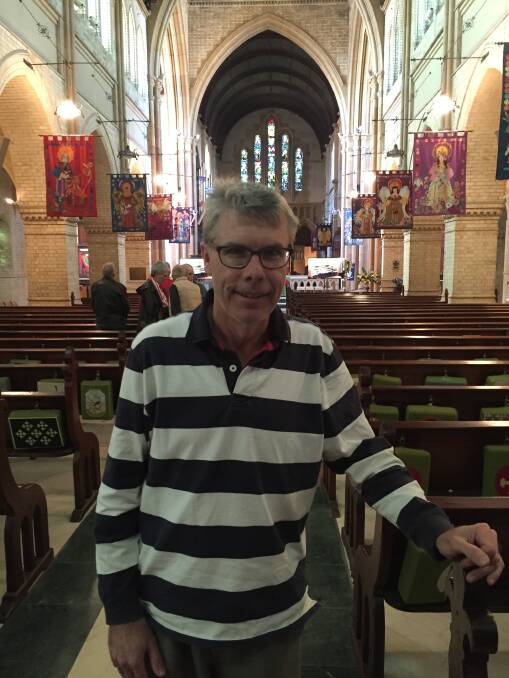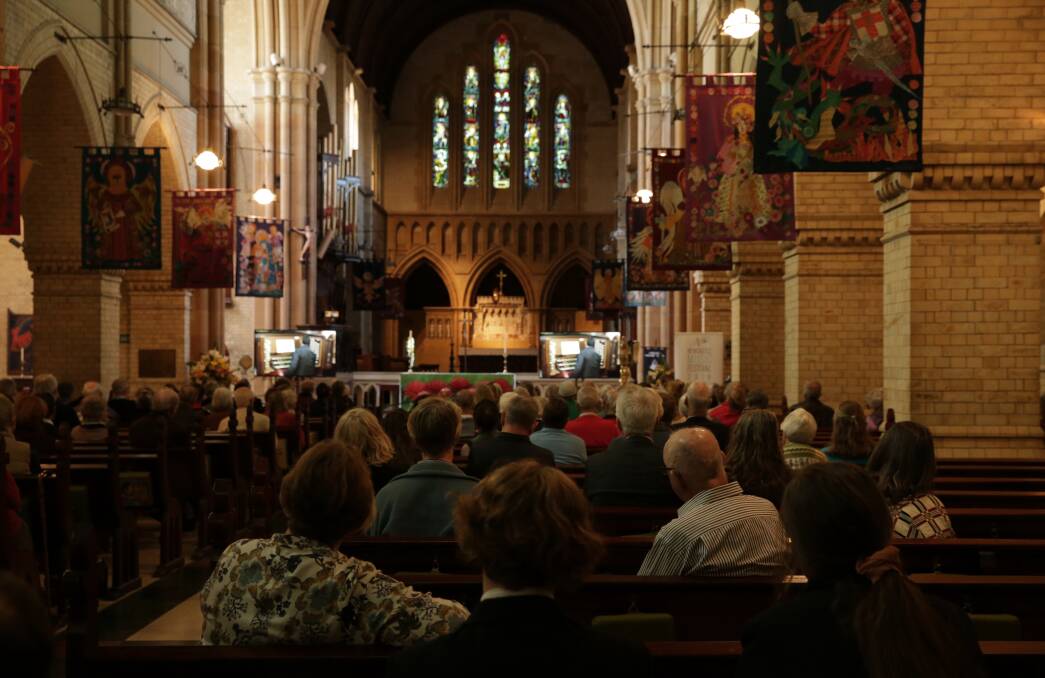
If Leonardo da Vinci were alive today, he’d be labelled a brilliant multitasker.
Subscribe now for unlimited access.
$0/
(min cost $0)
or signup to continue reading
He was THE Renaissance Man. Da Vinci was a painter, a sculptor, an architectural draughtsman, a thinker and an inventor. And that’s just the start of the list.
Given how prodigiously busy he was, you’d be forgiven for thinking da Vinci’s greatest invention was making more time.
Yet even this breathtaking overachiever knew it was important to take time out.
“Every now and then, go away, have a little relaxation,” da Vinci is quoted as saying, “for when you come back to your work, your judgement will be surer.”
So following the advice of one of the hardest workers in history, on Wednesday I hit “shut down” on my laptop, walked out of the routine, cool light and cold deadlines of the office and made a pilgrimage to Christ Church Cathedral to attend a lunchtime concert.
If you’re going to indulge in a guilty pleasure, such as sneaking out of work to listen to heavenly music, then a church is surely the place to do it.
As part of the third Newcastle Music Festival, Christ Church Cathedral’s organist Peter Guy performed a selection of pieces under the banner of “Bach and Friends”.
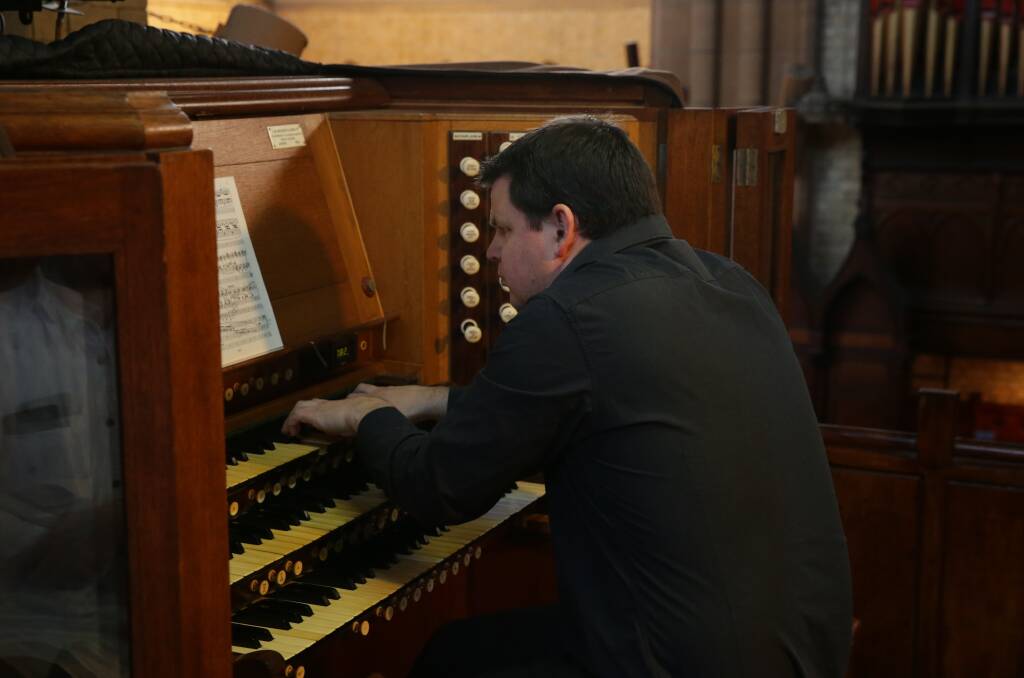
The festival’s co-artistic director David Banney said he and his fellow organisers had been keen to stage events on a weekday.
What’s more, the festival organisers wanted to involve Peter Guy. His playing has reverberated beyond the cathedral's walls and around the globe. He has performed in some of the world’s great churches, including Westminster Abbey and Notre Dame.
And then there was the exquisite venue of Christ Church Cathedral.
“Daytime is a great time for organ recitals in the church, because of the stained glass windows,” added Banney, acknowledging the experience wasn’t just about what you heard.
But the festival organisers didn’t want this to be a stuffy, reverential event. You could come as you are, be it in a business suit, jeans, or, as Banney wore, a footy jersey.
Being lunchtime, you could munch while you listened. Actually, it was encouraged. Outside, a stall was selling kransky rolls and pumpkin soup, offering a taste of the German origins of much of the music.
“Next time we’ve got to have the beer,” smiled Banney.
About 130 souls took their places along the pews in that extraordinary building on the hill that overlooks the Newcastle CBD. But at least for an hour, the audience would be transported far from the cares of a city “revitalising”.
Instead of our ears being clogged with the cacophony of construction and drivers’ screams of frustration at traffic diversions, they were soothed by the music of J.S. Bach, Antonio Vivaldi and Franz Liszt.
The program began with an arrangement of a Bach sacred song, Come, Sweet Death. The lyrics of the original song include the line, “Come, lead me to peace”, which was the reason I was here. From the work’s first notes that bloomed like a sunrise over the sea, the audience found peace, along with beauty and repose, as they listened to Guy playing the cathedral’s historic organ.
For many in the audience, Guy could be heard, not seen, as he was perched in the organ loft. However, images of him playing were beamed onto a couple of screens erected at the front of the nave.
The vision showed that as a musical multitasker, Guy was da Vincian.
In his performance of Bach’s Passacaglia and the allegro movements from Vivaldi’s Concerto in A Minor, for instance, Guy’s fingers were running furiously along the keyboards, while his feet were performing a jig on the pedals.
Indeed, one camera angle focussed on the pedals, and on Guy’s sock-shrouded feet.
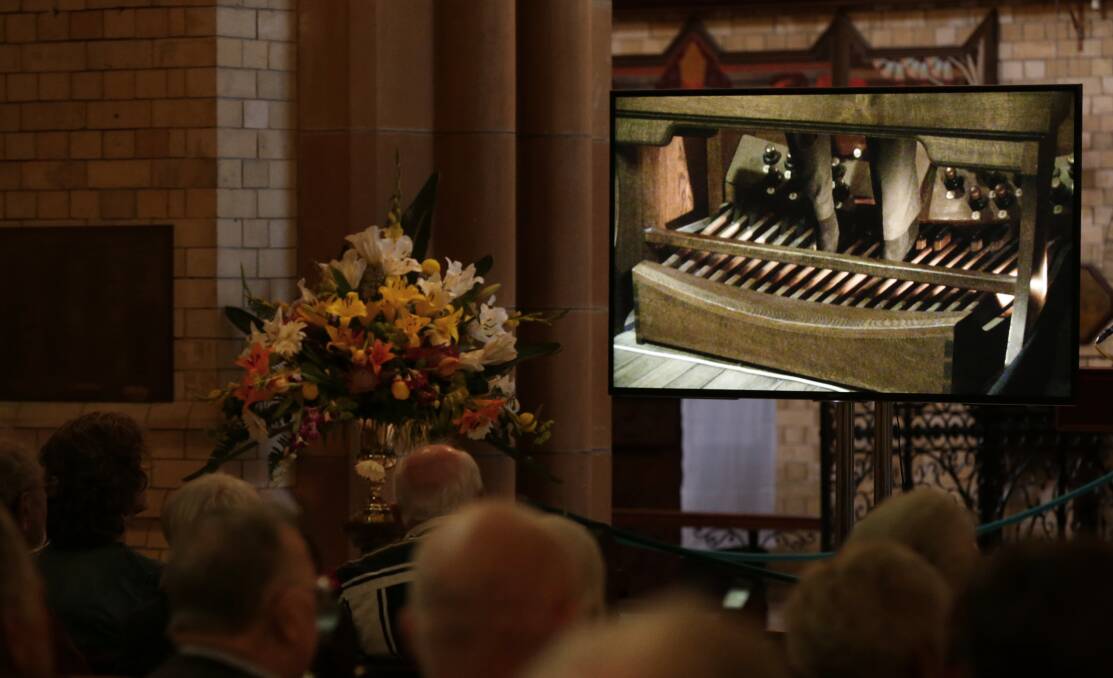
Yet to be immersed in the experience of “Bach and Friends”, I didn’t have to watch a screen. I was here to escape from having my waking hours defined by screens.
So I looked beyond the broadcast images, admiring the stained glass windows or craning my neck and gazing at the vaulted ceiling.
However, mostly I didn’t look at all. I just listened, as the tendrils of notes wrapped around the stone columns or soared to that awe-inspiring ceiling. I listened to the winter wind outside whistling a counterpoint to the great exhalation of breaths from the organ pipes.
I felt my chest thumped by the chords that marked the arrival of Liszt’s Fantasia and Fugue on BACH, a piece that Banney described as “a Himalayan mountain peak of organ playing; it’s seriously difficult”.
And I felt somewhere deeper inside the calming and nurturing effect that comes with the experience of listening to beautiful music superbly played.
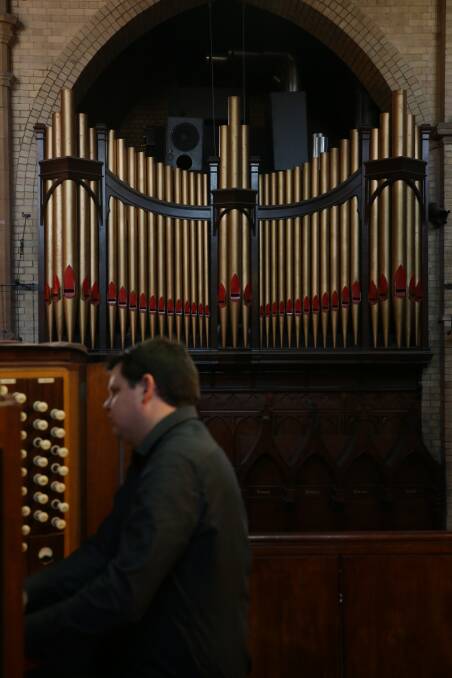
Which makes me wonder why Newcastle doesn’t have more lunchtime concerts.
Revitalising Newcastle, which sponsored this festival concert, has solo performers on city streets a couple of days a week to show, as the advertising says, “music is still live”.
Perhaps the initiative could be extended to fund regular workday concerts and recitals. After all, to bolster a community takes more than a light rail line and new buildings. They could call the concert series a “Revitalising the Soul of Newcastle” project.
If there are regular lunchtime concerts, it is up to us to support them. I know in our increasingly busy lives, it is hard to make time to attend a concert during the day. But that is precisely why we should attend. It gives us time to relax, to meditate, to feel moved and be reinvigorated.
Music helps us make the most of time, as it enriches our lives.
After the “Bach and Friends” concert, I’m not sure if I returned to work with surer judgement, as da Vinci would have had me believe.
But I did return with a smile. Not an ambiguous Mona Lisa smile, but a broad, “I’ve just experienced something wonderful” smile. And to be smiling like that in the middle of the day in the middle of a working week is verging on the miraculous.
